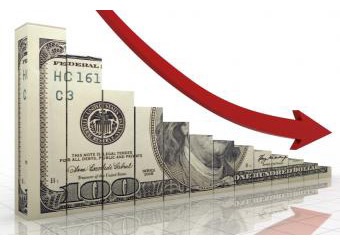The cost to carshare is falling down.
In this study, the researchers Joseph Schwieterman and Alice Bieszczat – from DePaul University, Chicago – explore the changing prices and level of taxation for carsharing in the United States through a review of hourly rates in 80 cities with Zipcar pods, as well as at U.S. locations served by car2go and Maven. The base rate for a one-hour Zipcar carshare between 2011 and 2016 is shown to have fallen from $9.39 to $8.92, a 5.0% drop. In inflation-adjusted terms, this constitutes an 11.2% real reduction. Retail taxes over the period, however, rose from 15.5% to 17.0%, offsetting almost one third of the price reduction. In some cities, taxes on one-hour reservations exceed 30% due to transaction-based fees that apply regardless of the duration of the trip. Interpreted broadly, these results indicate that carsharing is becoming more affordable to urban consumers, while being subject to extensive competition and facing the burden of extensive retail taxes that may hamper efforts to achieve local sustainability goals.
To measure the prices and tax burden facing carsharing, the lowest-priced vehicle available and taxes and fees added by government agencies were recorded at locations throughout the United States. Reservations were made for a compact vehicle, such as a Honda Civic, which are common across fleets. The sample consists of price measurements at a representative pod in 80 cities falling into one of two categories: i) the 40 most populous U.S. cities, all of which have populations of 300,000 or more, in which neighborhood carsharing is available through car2go, Maven, and/or Zipcar, and ii) a stratified sample of 40 smaller cities ranging in population from 4000 to 299,999, all of which are served by Zipcar.
Researchers observed a significant fall in the price of carsharing suggesting that consumers are reaping benefits from the sector’s evolution and expansion. In addition to being more environmentally sustainable than car ownership, carsharing is increasingly becoming more affordable to lower-income consumers. The decline in rates follows a pattern common among industries that start with an experimental business model and gradually benefit from heightened product awareness, growing managerial sophistication, and greater economies of scale. Tax increases, however, have offset almost a third of the price decline, which may negatively affect operating margins.
More highlights are:
- The base rate for a one-hour Zipcar carshare between 2011 and 2016 fell from $9.39 to $8.92, a 5.0% drop. In inflation-adjusted terms, this constitutes an 11.2% real reduction.
- Retail taxes over the period rose from 15.5% to 17.0%, offsetting almost one third of the price reduction.
- In some cities, taxes on one-hour reservations exceed 30% due to transaction-based fees that apply regardless of the duration of the trip.
- Carsharing is becoming more affordable to urban consumers, while being subject to extensive competition and facing the burden of retail taxes that are substantially higher than general sales taxes in most cities.
- Although the political economy of car rental taxes makes reform difficult, such efforts should be regarded as being potentially important to the achievement of local sustainability goals.
Read the full paper at:http://www.sciencedirect.com/science/article/pii/S0967070X16305728
















